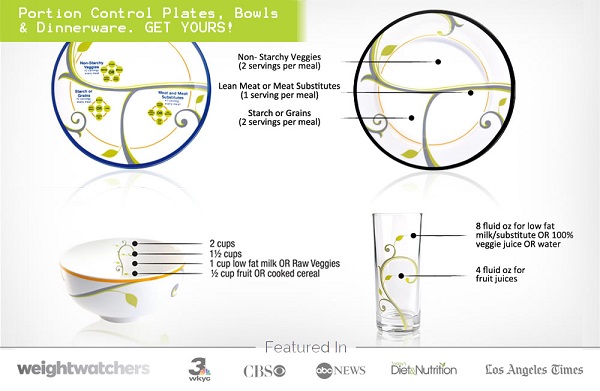The World Health Organization describes hypertension or high blood pressure as a condition whereby the blood vessels experience a persistent state of elevated blood pressure.
Despite being a common occurrence amongst people, affecting at least a billion, hypertension is regarded as a serious medical condition, which contributes to the development of brain, heart, kidney, and other deleterious disorders.
However, high blood pressure is more than just a risk for complications. It also leads to mortality as well, causing premature deaths to those who are subject to its affliction.
As scary as the idea of having a hypertension would be, there is fortunately means by which it can be mediated. While living healthy has a major role to it, even something as simple as eating a certain food—like celery—is also pivotal in it.
Celery and Blood Pressure Facts
Here are the benefits that come with eating celery as a mediation against hypertension:
1. Anti-hypertensive to mild and moderate cases
Celery has always have a reputation as anti-hypertensive in folk medicine. To authenticate whether the traditional belief that consumption of celery does mediate mild to moderate cases of hypertension, a study by Madhavi, D. et al (2013) was conducted.
The research made use of celery seed extract across the span of 6 weeks. It was subsequently found out that the subjects of the study showed a substantial reduction to both their systolic and diastolic blood pressure.
2. It lowers cholesterol
A build-up of cholesterol in the blood vessel is one of the major contributor of high blood pressure among people. As a rule of the thumb, the greater the concentration of bad cholesterol, the more pressure is exerted across the cardiovascular system due to impeded blood flow. Conversely, if the cholesterol is dramatically reduced, so does the body’s blood pressure.
A study done by Aburjai, T. et al (2009) has found out that celery seed extracts are potent in reducing deleterious cholesterol. Celery’s potency as anti-lipidemic draws from plenty of ways.
3. Rich in fiber
Celery is a rich source of fiber where its anti-lipidemic effect draw strength from (Brown, L. et al, 1999). The benefit comes from the fiber’s ability to clean the blood vessels that are clogged by the presence of unhealthy cholesterol.
Based on a food chart by C.S. Mott Children’s Hospital, a single stalk of celery contains at least 0.7 grams per serving of fiber. Juicers can therefore get an ample dose of fiber in their diet by consuming a substantial amount of celery in their drink.
4. Contains cholesterol-reducing Phthalide
The celery is known for many of its health benefits and some of these owe to the organic chemical compound, phthalide, that it possesses. One benefit of this substance to health is its ability to lower the body’s LDL or bad cholesterol (Sowbhagya, H.B., 2014).
Another benefit to phthalide is its ability to relax artery wall tissues, giving it better flexibility for blood flow and therefore reduce pressure (Florida State University, 2004).
5. Fights Insomnia that otherwise results to increased blood pressure
Lack of sleep is a major driving force to hypertension. As the body goes haywire when it lacks proper rest, people who do not get enough Z’s tend to be hypertensive than their well-rested counterparts. Coincidently, people who frequently needed sleep have higher chances of developing serious illnesses, including the deadly stroke.
With the potency to fight off sleeplessness, eating celery on a regular basis helps in mitigating the occurrences of lack of sleep-induced hypertension. In the book titled “Natural Beverages,” authors Butu, M. & Rodino, S. (2019) highlighted the celery’s power to address a sleep disorder, such as insomnia.
While itself, celery is effective in setting a condition that induces sleep, when paired with other natural sources like honey and milk, the sleep-boosting effect is heightened quite substantially.
6. Helps boost mood
Celery has a natural tendency to boost our mood when consumed which makes it a powerful solution against mood-related problems, such as anxiety and depression.
Although research on the topic is focused on animal model (Tanasawet, S. et al, 2017), there are anecdotal evidences claiming the mood-lifting ability (particularly, against anxiety) of celery among humans.
Proponents of celery as a mood enhancer claims that people who consume juiced celery in the morning have significantly better moods than their counterparts who did not.
7. Aids in the relaxation of muscles that lowers blood pressure
In general, celery is rich in many nutrients that aid to overall health. Including especially magnesium that is a chemical known for its significant role in muscle relaxation, an essential mechanism behind the lowering of blood pressure (Gogus, U., 2011; Griffin, I.J., 2003).
Based on the information, it can be extrapolated that a regular consumption of celery paves way to body relaxation that is fundamental in maintaining blood pressure.
8. Combats stress
Stress is another major contributor to high blood pressure, with many living in unfavorable conditions as mostly its victims. But, like many other factors that influence the human body, stress is also a condition that can be mediated and render it managed even before it does harming effect.
The benefit boils down to celery’s abundant consistency of essential mineral salts, including magnesium. This important mineral is critical in many of the body’s functionality, including the management of stress (Griffin, I.J., 2003).
9. Low calories
Celery is among the least fattening foods out there which indirectly benefits people for not causing them to gain weight with regular consumption (Hu, T. et al, 2012). The issue primarily boils down to the correlation between weight and the occurrence of high blood pressure.
The benefit owes to the fact that a cup of chopped celery only has 16 calories in it, which is less than 2% that the body requires—far less to cause unnecessary weight gain.
10. Easy to consume
Getting access to celery for the purpose of consuming it is easy. Being a staple in most markets, buying celery for food is a simple feat—making the management of hypertension very feasible (Madhavi, D. et al, 2013).







 We're committed to bringing you the best in health and helping you discover the wonderful world of the DASH diet. If you're looking to control your blood pressure, hypertension, or just looking to get into great health, we're here to help.
We're committed to bringing you the best in health and helping you discover the wonderful world of the DASH diet. If you're looking to control your blood pressure, hypertension, or just looking to get into great health, we're here to help. 



